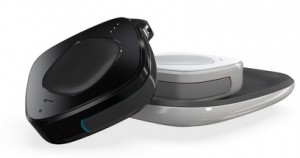 Y-Combinator-backed Amulyte made news last week when the Canadian startup launched its senior monitoring system, offering the elderly an on-the-go device connected to a companion app. Features of the device include a help button, fall detection, and activity tracking, while the app offers phone, email and text notifications.
Y-Combinator-backed Amulyte made news last week when the Canadian startup launched its senior monitoring system, offering the elderly an on-the-go device connected to a companion app. Features of the device include a help button, fall detection, and activity tracking, while the app offers phone, email and text notifications.
Amulyte founder Jaclyn Konzelmann wrote on the company's website about the inspiration for the company, noting that she had spoken with a number of people in the space. "The conclusion was that this space was stagnant and riddled with antiquated technology that hadn't been improved upon in decades. In short, there was a lot of room for improvement, as the technology simply hadn’t caught up with the consumer market demand for the aging population," she wrote.
A number of companies have attempted to address that perceived demand in the past, with varying degrees of success.
This device closely resembles Wellcore System, announced at CES 2010, which also detected falls from other motions, worked outside the home, connected to a mobile device, and provided a portal for family members and the user to view the user's daily activity. A year later at CES 2011, Wellcore switched gears and launched NewYu, a fitness monitor that can identify specific body movements and track fitness progress via an Android app. As of late, Wellcore might be out of business -- NewYu has not been updated in the Apple App Store since 2011 and the CEO Casey Pittock has since taken a job as the vice president of sales and marketing at sleep tracking developer BAM Labs.
In January, MobiHealthNews wrote about Philips' entry into the mPERS space this year at CES, with GoSafe. While we have previously written about the available room for innovation in this space, when Phillips debuted its improved system, the company told MobiHealthNews 100,000 Lifeline users had adopted the new version of the service that offers AutoAlert fall detection, a feature also on Philips' demoed product GoSafe. At the time, Philips Lifeline already had a user base of around 7 million, but half a year later, GoSafe has yet to launch.
Other companies competing in the space include MobileHelp, GreatCall, Verizon, AT&T, Lifecomm, SecuraTrac, and Vesag.
Two products that have made it to the shelves do not have syncing capabilities. GreatCall is a phone service that also sells urgent response devices called 5Star, currently at Walmart, Best Buy and Sears. While GreatCall also offers an app for urgent response needs, there is no device and app converged system available.
Verizon's SureResponse Personal Monitor is also available online or for pickup in stores but also does not connect to a mobile device. The company also has a majority stake in Lifecomm, which has its own mPERS offering in wristband form, although this product has not yet launched.
For other technologies that tackle fall prevention, visit MobiHealthNews' roundup 7 technologies working to prevent falls.















